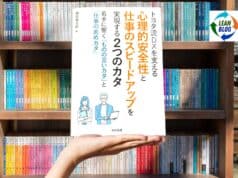Last month, in the midst of Toyota CEO Akio Toyoda's appearance in front of Congress, there was a little sidebar in the USA Today that caught my eye (“Toyoda vs. Toyota“).
An oft-repeated (including here in my blog) story in the Lean world says that the Toyoda family used “Toyota” as the company name because “Toyota” requires only 8 brush strokes to be written in Japanese hiragana characters, while the family name requires 10. This is often used as an example of early “kaizen” or waste reduction. But it's not true?
A Toyota spokesperson says that the story is inaccurate. From the article:
The carmaker began in 1933 as part of Toyoda Automatic Loom Works, a sewing machine company founded by Sakichi Toyoda. When the auto unit was split off in 1937, son Kiichiro Toyoda decided to change the spelling of its name to keep his business and family life separate.
It may have been marketing, too: Toyoda means “abundant rice field.” It may have seemed too agrarian for a carmaker.
Yet, a company book from the 1980s told the story… historical license, an urban legend, or revisionist history? I guess it doesn't really matter. There's also this BBC story that tells both sides of what might have happened (“Why is the car giant Toyota not Toyoda?“).
Lean Myth… Busted? That doesn't have the same ring to it, with the question mark, as the Discovery Channel show MythBusters!
What do you think? Please scroll down (or click) to post a comment. Or please share the post with your thoughts on LinkedIn – and follow me or connect with me there.
Did you like this post? Make sure you don't miss a post or podcast — Subscribe to get notified about posts via email daily or weekly.
Check out my latest book, The Mistakes That Make Us: Cultivating a Culture of Learning and Innovation:










Interesting! GM spelled employee as “employe” for over 40 years for the express purpose of saving keystrokes and got soundly criticized for having the arrogance of trying to change the English language. Apparently, there were a lot of written communications about employees, for better or worse. In these days of speech recognition and special keystroke substitutions, the spelling was made standard again about 5 years ago. At least by having a short name (GM), they saved the pundits a lot of effort and keystrokes.
I never believed that story. The entire process of even entering the automotive industry wasn’t that forward-thinking. If you really want the history (for the sake of history), I really recommend Michael Cusumano’s out of print book The Japanese Automobile Industry. Hopefully this link works.
http://www.amazon.com/Japanese-Automobile-Industry-Technology-Management/dp/067447256X/ref=sr_1_11?ie=UTF8&s=books&qid=1270036248&sr=1-11
.-= Jamie Flinchbaugh ´s last blog ..Integrity =-.
It’s true.
The conventional wisdom in Japan, and what I have heard from Toyota people in Japan is that it was changed from Toyoda to Toyota because “ta” sounds more pleasing than “da”. The “real story” is that they consulted a numerologist who told them that 8 strokes was more auspicious than 10, though that may not make it into the official history of a company developing and manufacturing high tech products. This was not uncommon practice in choosing a mate when I was young, living in Japan. If the number of strokes in a woman’s new name after taking a man’s name was inauspicious, the marriage may have been called off by her grandparents, or the man may have altered his name.
Toyota and Toyoda both mean “abundant rice paddy”.